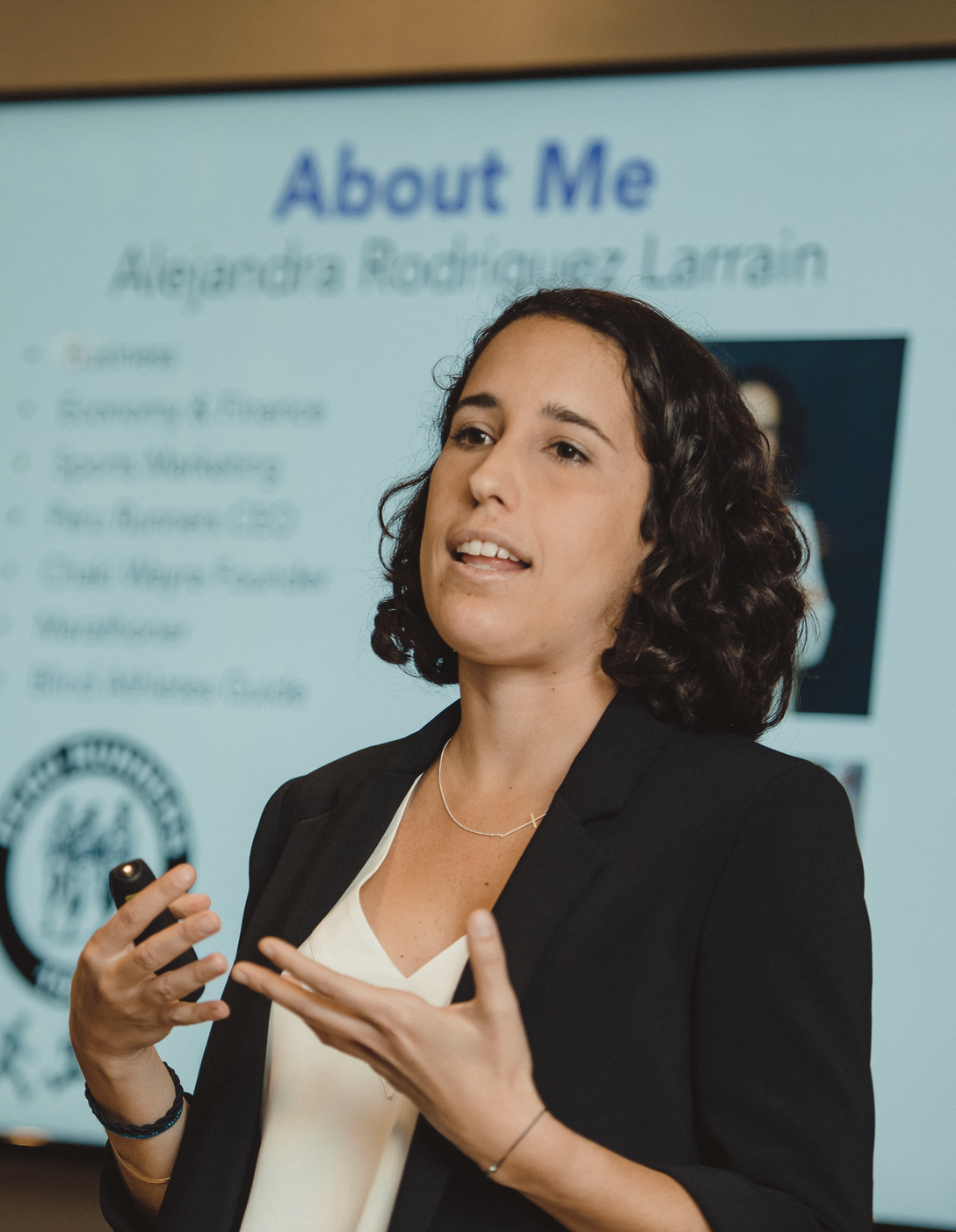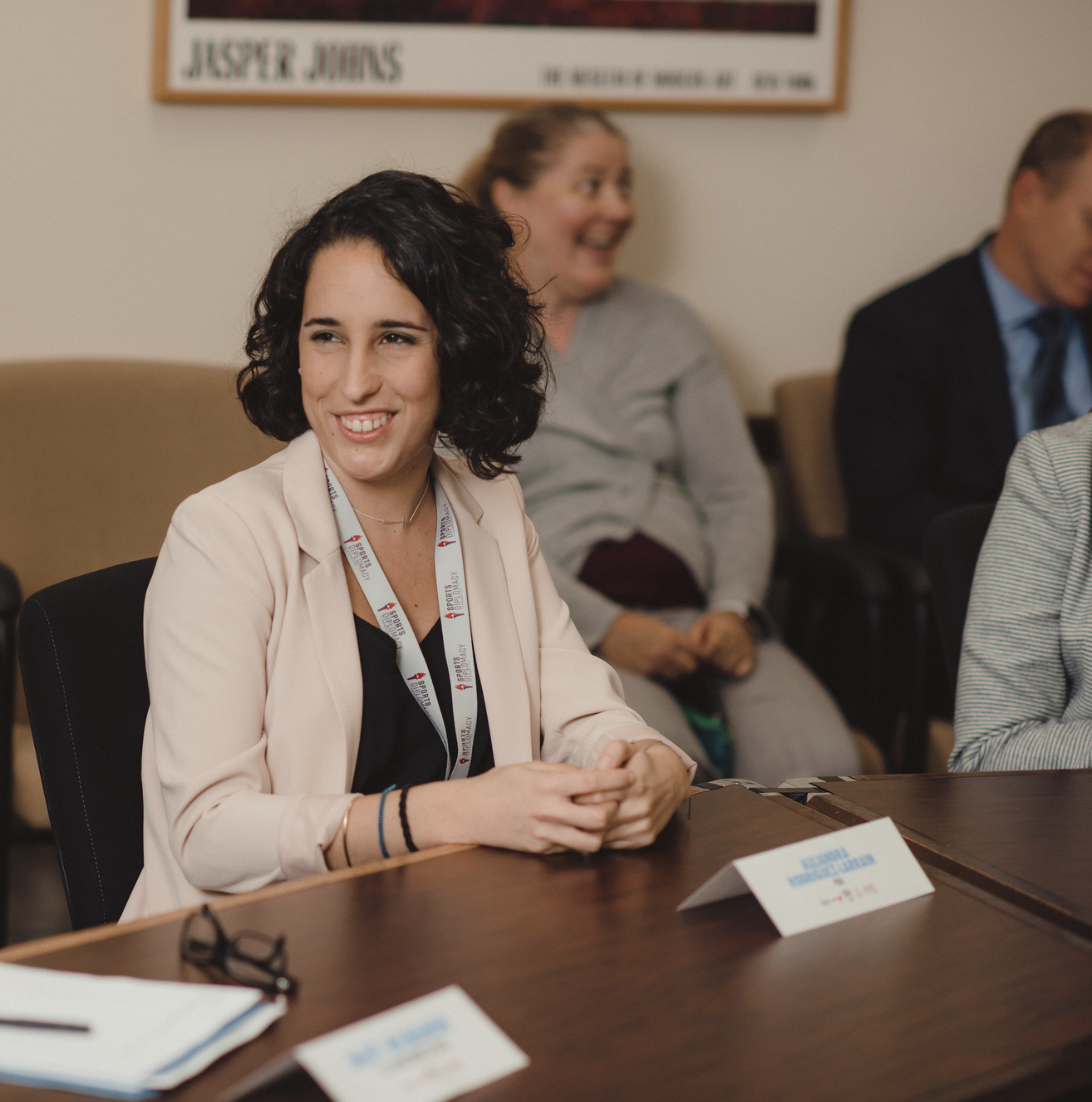
As a child, Alejandra grew up watching her dad rise before the sun to lace up his shoes and run in Lima’s early morning mists. An attorney and a marathon runner who competed in New York City and around the Andes, he also started a running club in 1984. He called it Peru Runners, and it rested on his firm belief that running is for everyone. From a young age, Alejandra swam and played golf, soccer, and tennis. In primary school, she joined the track and field team, thinking she might one day compete in a marathon next to her dad.
Stepping onto the track for the first time, and every time after, she found that nothing compared with the feeling that running gave her. “It is like life,” she says. “There will be sacrifices and obstacles along the way, but the rewards of overcoming them are much greater, and you should enjoy every step.” Alejandra runs every single day with other runners, friends, or family. Since 2011, she has run the New York City Marathon five times and has competed in half-marathons in Spain and across the Americas. When she runs, she experiences happiness, freedom, and a connection with life’s simple things. “I feel more human than ever,” she says. She gives a lot of credit to her parents’ approach to sport. Encouraging her to participate and assuring her that she belonged, she says, “was the biggest gift they could have given me.”

In Peru, girls and women face violence, racism, early pregnancies, and have few opportunities to participate in sports. “Peru is a place where economic and gender differences are very stark,” Alejandra says. “There is a long coast with modern cities, where some girls have access to economic assets and don’t feel different from the boys. Then we have the highlands and the jungle, and poor communities—even in the big cities. These are places where many girls have to fight to even get an education.” Alejandra believes that running can create a positive environment where women can gain the confidence to fight for their rights and improve the quality of their lives. “In running, you will suffer,” she says. “Running builds life skills, confidence, body awareness, friendships, and creates safe environments for women to connect with each other.”
Alejandra’s parents made sure that she was aware of social and economic injustices in society, and she had long felt that she could make a bigger impact. While working on her second bachelor’s degree from the Universidad de Piura, Alejandra started spending time with her dad at Peru Runners, working with him to grow its reach and involve more people. She hadn’t considered that this kind of work might lead to a career path for her, but, after graduating summa cum laude in 2011 with a degree in Economy, Finances, and Business Administration, she came on board as Peru Runners’ CEO. She immediately set to work developing social programs with the goal of involving women in running and promoting running events throughout the country each month. As the organization grew, so did the participation of women, who have come to represent 45 percent of the membership of its eight branches nationwide. Then, in 2012, Alejandra and her sister organized a non-profit arm of the club, Chaki Wayra, which means “flying feet” in Quechua, Peru’s most widely spoken indigenous language. The non-profit helps children from the Andes develop running skills and grow their passion for sports.


In 2017, Alejandra participated in the Global Sports Mentoring Program (GSMP), where she was mentored by two of the women leading Under Armour, a major global sports brand. Pamela Catlett, Senior VP and General Manager of Women’s & Youth, and Senior VP of Global Retail, Susie McCabe. These two mentors guided Alejandra in leadership and management, specifically how to access key resources and attract new sponsors, think through the scale of the change she wanted to effect, and brainstorm new ways to expand Peru Runners’ reach. Alejandra professes that the experience played a big role in her life, and she left feeling very grateful and incredibly strong.
She returned to Peru determined to change the way her country thought about sports, to create safe spaces for girls, and to help grow women’s confidence to fight for their rights and improve their quality of life. While she continued to grow Peru Runners, she felt compelled to expand her own reach, and, in 2019, she launched a non-profit, Fundación Flama (Flame Foundation). Its mission is to encourage girls from vulnerable communities to become active and to break down barriers to sport, through a variety of programs from surfing to soccer. One program, called “Flamitas Dinámicas” (Dynamic Flames), teaches running skills to girls ages eight to thirteen, and aims to impact 250 individuals. Alejandra is also passionate about empowering imprisoned men and women through running, and is raising awareness around issues of harassment toward women who exercise outside. “With everything,” she says, “we’re trying to promote women’s equality.”
When Alejandra thinks back to those days watching her dad lace up his running shoes, she knows how privileged she was. She had unhindered access to sport and the encouragement to play — a rare gift in her country — and she wants to pay it forward. She hopes to change the lives of hundreds, if not thousands, of girls and women in underserved communities in Peru. “We are a country of big social and economic divisions so women are often left behind in the race toward equality,” says Alejandra. With Alejandra fighting for them, Peruvian girls and women are back in the race and inching ever closer to the finish line.